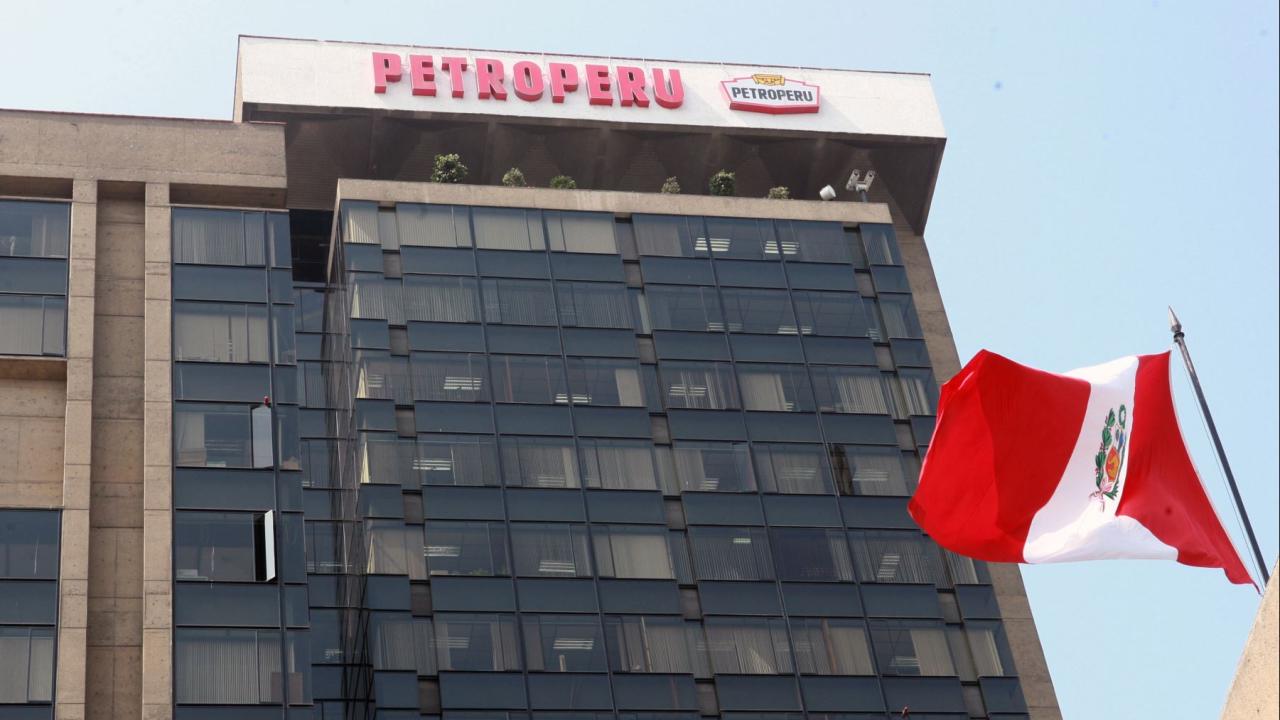
The president of the state oil company, Oliver Stark, highlighted that the decision to concession or sell the central building seeks to generate liquidity for the company, while the transfer of personnel to Talara is part of a strategy to optimize operations and reduce costs.
The board of directors of Petroperú – now headed by Oliver Stark – approved eight measures on Tuesday morning aimed at cleaning up the company and showing citizens that the changes to save it “are serious.”
“Now, we are tightening our belts,” remarked the president of the state oil company in an exclusive interview with El Comercio.
The first approved measure, also proposed in May, was "the hiring of Petroperú's restructuring company, which will be in charge of the general management of the company." This new "private CEO", as Stark calls him, will be selected next September.
Another measure approved was the sale of the state company's non-productive assets. Already last Friday, June 14, the Minister of Economy and Finance, José Arista, had mentioned the possibility, however, there is an obstacle because these assets are guaranteed by the facilities (bailouts) previously granted by the Ministry of Economy and Finance (MEF).
This matter "is an internal issue that we are going to solve," said the president of Petroperú. Likewise, he added that it is not related to the well-known split of certain business units of the oil company.
The sale of assets seeks to convert these into liquidity for the company, while the spin-off would imply that the company would abandon the search for complete vertical integration, a goal established during the presidency of Pedro Castillo.
The board also approved the abandonment of the main building on Paseo de la República Avenue, in San Isidro, and the transfer of personnel to Talara, where the crude oil refining complex is located.
"Suddenly the best thing is to concession it to get cash. Or sell it," Stark considered. "[...] Maybe a group will stay in an office here, but it would be on a single floor that we would rent to the concessionaire."
Regarding the number of employees, it has been reported that 600 people currently work in Lima and 900 in Talara.
The president of the oil company mentioned that 92 properties have been identified that are currently guaranteed, with approximately ten of them ready for immediate execution. These properties include the main building on Paseo de la República Avenue, the Petro-Perú Club on Golf Los Incas Avenue, and various properties in Talara and Punta Arenas.
"I don't want to give numbers so as not to contaminate the process, but at some point someone valued this building at US$120 million. Perhaps the number, compared to the size of the figures we are used to hearing in Petroerú, seems like it doesn't move the needle. , but it does move her. Any measure is welcome," he added.
Petroperú is immersed in a difficult financial and operational situation, marked by an accumulated debt that exceeds US$8.5 billion, contrasting with a total reported equity of US$1.645 million in recent reports. During recent years, the company has depended on financial bailouts provided by the Public Treasury to sustain its operations in critical areas such as transportation, refining, distribution and marketing of fuels nationwide.
Another important aspect addressed in the interview was the operational restructuring of Petroperú, which includes the evaluation of the operational continuity of the Conchán refineries in Lima and Iquitos in Loreto. Oliver Stark mentioned the possibility of selling or renovating these refineries to make them more economically viable. In addition, expense and investment reduction measures were announced, with the objective of saving up to US$100 million in minor administrative costs.
Regarding the management of strategic assets, the company plans to directly operate the maritime fuel terminals in the north and center of the country, currently managed by private companies. Stark emphasized the intention to regain control of these assets to improve the company's efficiency and profitability.
"We want to manage it ourselves because we know we can do it better and because it is highly profitable. Petroperú has a great asset there," he explained.
The president also highlighted the importance of a forensic audit of the Talara refinery modernization project. This audit aims to identify responsibilities for delays and excessive costs in the project, with the hope of avoiding similar problems in the future and sending a message of seriousness about the company's management.
In financial terms, Stark mentioned proposals to restructure Petroperú's debt and attract private investment by incorporating 49% private shareholders.
"What, rather, comes after this is the financial issue so that, starting in 2028, Petroperú returns to generating profits," he projected.
Finally, while ambitious measures have been announced to revitalize Petroperú, Stark acknowledged that there is a possibility that a new financial rescue will be required in the future, although it is hoped to avoid this through the effective implementation of the planned measures.
"The idea is that the Government no longer puts its hand in its pocket," he concluded.









